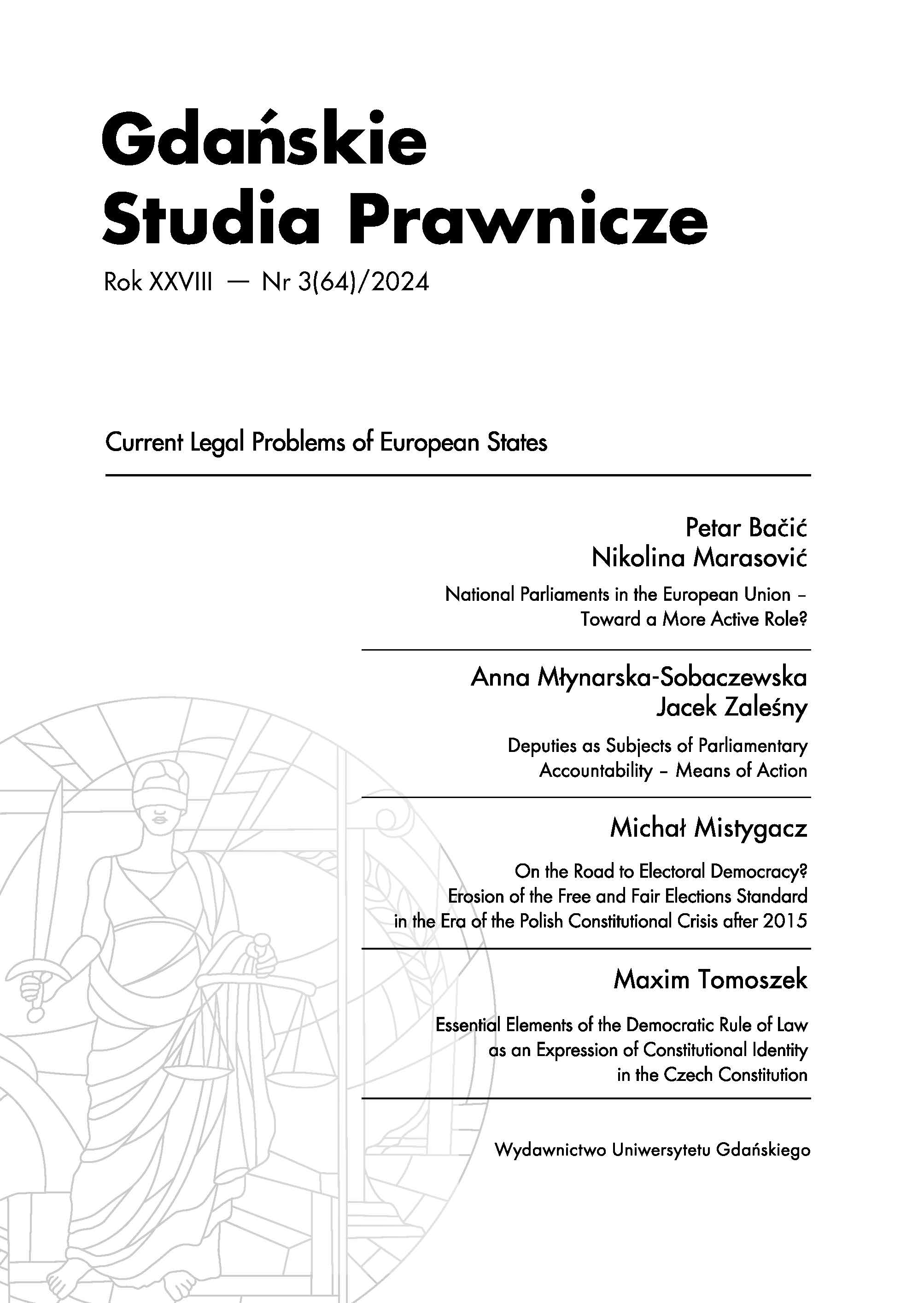Impact of European Integration on Substantive and Formal Constitutional Amendments in Spain in the Light of the Spanish Constitutional Court’s Jurisprudence and Constitutional Practice
Wpływ integracji europejskiej na materialne i formalne zmiany konstytucji w Hiszpanii w świetle orzecznictwa hiszpańskiego Trybunału Konstytucyjnego i praktyki ustrojowej
Author(s): Andrzej Jackiewicz, Anna Rytel-WarzochaSubject(s): Law, Constitution, Jurisprudence, International Law
Published by: Wydawnictwo Uniwersytetu Gdańskiego
Keywords: Spanish constitution; European Union law; hierarchy of norms; European integration.
Summary/Abstract: The purpose of the article is to answer the question of how the process of European integration has influenced the Spanish constitutional order. Taking the European clause set out in Article of the Spanish Constitution as a starting point, it analyzes both impacts of a formal-legal nature, but also influences of a substantive nature affecting the normative content of the Spanish Constitution. The study demonstrates that EU law, based on the principle of “direct applicability” and “direct effect,” intensively influences Spanish constitutional law and has been the strongest factor influencing the Spanish legal order since the enactment of the Spanish Constitution in 1978. Thus, while the Spanish Constitution in the formal sense remains a rigid constitution, when viewed in the category of a substantive constitution, it has proved to be flexible and susceptible to external influence, despite the fact that this occurs de jure with the consent of Spain expressed in respect of the principle of state sovereignty, on the basis of the provisions contained in Article 93 of the Spanish Constitution.The purpose of the article is to answer the question of how the process of European integration has influenced the Spanish constitutional order. Taking the European clause set out in Article of the Spanish Constitution as a starting point, it analyzes both impacts of a formal-legal nature, but also influences of a substantive nature affecting the normative content of the Spanish Constitution. The study demonstrates that EU law, based on the principle of “direct applicability” and “direct effect,” intensively influences Spanish constitutional law and has been the strongest factor influencing the Spanish legal order since the enactment of the Spanish Constitution in 1978. Thus, while the Spanish Constitution in the formal sense remains a rigid constitution, when viewed in the category of a substantive constitution, it has proved to be flexible and susceptible to external influence, despite the fact that this occurs de jure with the consent of Spain expressed in respect of the principle of state sovereignty, on the basis of the provisions contained in Article 93 of the Spanish Constitution
Journal: Gdańskie Studia Prawnicze
- Issue Year: 3/2024
- Issue No: 64
- Page Range: 25-38
- Page Count: 14
- Language: English

